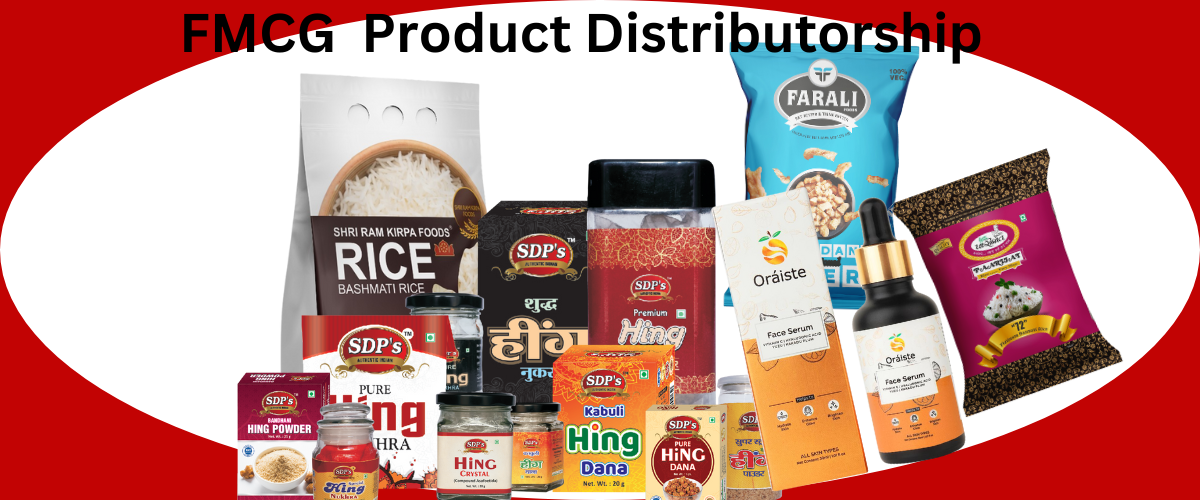In the fast-paced world of Fast-Moving Consumer Goods (FMCG), staying ahead in the distribution game requires a keen understanding of the market and the products that consumers demand. Distributors play a crucial role in ensuring that these everyday essentials reach the shelves of retail stores and eventually the hands of consumers. But with so many products to choose from, which ones should distributors focus on? In this blog, we’ll explore the top FMCG products that are perfect for distribution, helping you make informed decisions and boost your business.
What Are FMCG Products?
FMCG products are items that are sold quickly and at relatively low cost. These include a wide range of frequently purchased consumer products such as toiletries, soap, cosmetics, teeth cleaning products, shaving products, and detergents, as well as other non-durables such as glassware, bulbs, batteries, paper products, and plastic goods. Food and beverage products are also part of this category. Because these items have a short shelf life and are in constant demand, they are ideal for mass distribution.
Why Focus on FMCG for Distribution?
- High Demand: FMCG products are always in demand because they are essential for daily living. This ensures a steady flow of sales and revenue for distributors.
- Quick Turnover: These products have a fast turnover rate, meaning they are sold and restocked frequently, providing consistent business opportunities.
- Brand Loyalty: Many FMCG products have strong brand loyalty. Consumers often prefer certain brands, ensuring repeat purchases.
- Diverse Range: From food and beverages to personal care items, the variety in FMCG allows distributors to cater to a wide market.
Top FMCG Products for Distribution
- Food and Beverages
- Snacks and Confectionery: Items like chips, biscuits, chocolates, and candies are popular among all age groups and are frequently purchased.
- Dairy Products: Milk, cheese, butter, and yogurt are staple items in many households.
- Beverages: Soft drinks, juices, bottled water, and energy drinks are always in demand.
- Packaged Foods: Ready-to-eat meals, instant noodles, and canned goods are convenient options for busy consumers.
- Personal Care Products
- Skincare: Moisturizers, lotions, sunscreens, and face washes are essential for personal grooming.
- Haircare: Shampoos, conditioners, hair oils, and styling products are consistently popular.
- Oral Care: Toothpaste, toothbrushes, mouthwash, and dental floss are everyday necessities.
- Cosmetics: Makeup products like foundation, lipstick, and mascara are high in demand, especially among women.
- Household Products
- Cleaning Supplies: Detergents, disinfectants, and floor cleaners are used in every household.
- Paper Products: Tissues, toilet paper, and paper towels are essential for hygiene and cleanliness.
- Batteries: Widely used in remote controls, toys, and other electronic devices.
- Health and Wellness Products
- Vitamins and Supplements: Increasing awareness about health has led to a rise in the consumption of dietary supplements.
- Over-the-Counter Medications: Pain relievers, cold and flu medications, and antacids are commonly stocked in homes.
- Baby Products
- Diapers: Essential for families with infants and toddlers.
- Baby Food: Nutritious and safe options for feeding infants.
- Baby Care: Products like baby wipes, lotions, and shampoos are always in demand.
Key Considerations for Distributors
- Market Research: Understanding consumer preferences and market trends is crucial. Conduct thorough research to identify which FMCG products are popular in your target market.
- Supplier Relationships: Building strong relationships with reliable suppliers ensures a steady supply of high-quality products.
- Storage and Transportation: Efficient logistics are essential. Ensure you have adequate storage facilities and a reliable transportation network to keep products fresh and deliver them on time.
- Brand Selection: Partner with well-known brands that have strong market presence and consumer trust. This can boost your credibility and sales.
- Regulatory Compliance: Ensure all products comply with local regulations and quality standards. This is particularly important for food, beverages, and health products.
- Promotional Strategies: Collaborate with retailers on promotional activities to boost product visibility and sales.
Trends Influencing FMCG Distribution
- E-Commerce Growth: The rise of online shopping has transformed the FMCG landscape. Distributors should consider partnering with e-commerce platforms to reach a wider audience.
- Sustainability: Consumers are becoming more environmentally conscious. Stocking eco-friendly and sustainable products can attract a new segment of customers.
- Health Consciousness: There is a growing trend towards health and wellness. Distributors should focus on products that promote healthy living.
- Technology Integration: Utilizing technology for inventory management, order processing, and logistics can enhance efficiency and reduce costs.
Conclusion
The FMCG sector offers immense opportunities for distributors. By focusing on high-demand products such as food and beverages, personal care items, household products, health and wellness products, and baby care items, distributors can ensure steady business growth. Staying attuned to market trends, building strong supplier relationships, and leveraging technology will further enhance distribution efficiency and success. Whether you’re an established distributor or new to the business, understanding and tapping into the FMCG market is a smart strategy for sustained growth and profitability.
In the ever-evolving world of FMCG, adaptability and a keen sense of market dynamics are key. By choosing the right products and implementing effective distribution strategies, you can ensure that you stay ahead in this competitive industry.






